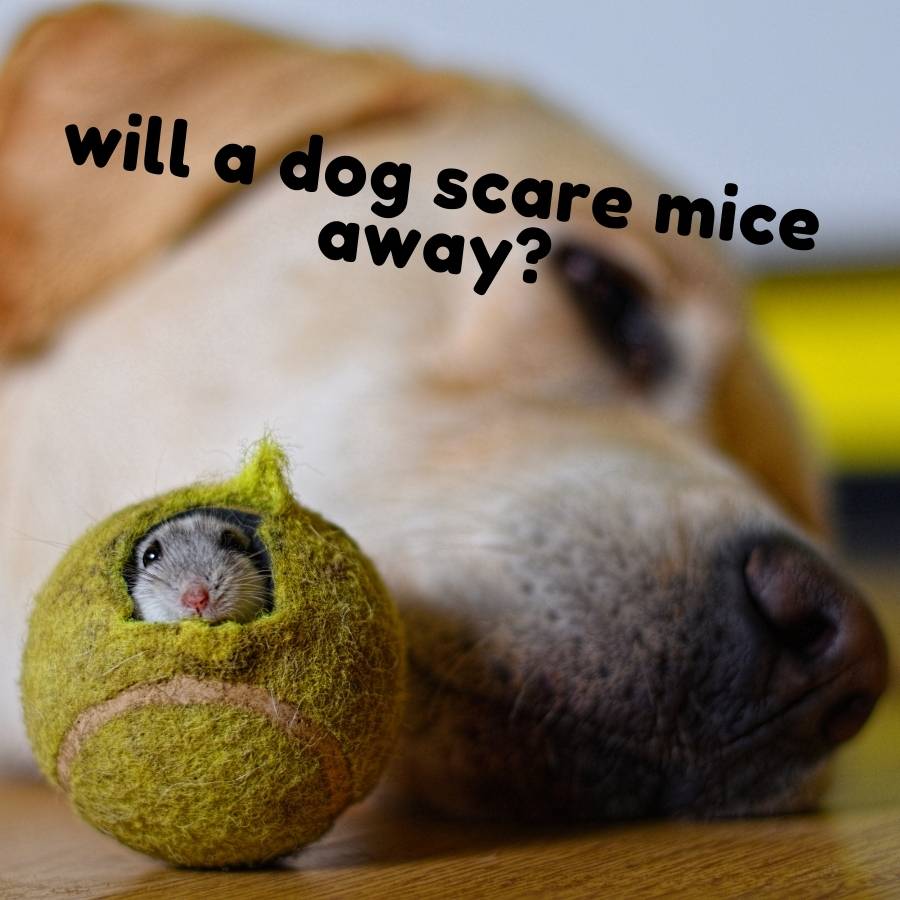Mice might freak humans out but in the animal world, they are just the little guys who are often attacked by predators.
In general, mice do not like to be in danger so they avoid animals that present a risk to them.
When mice see predators, they avoid them, but do mice consider dogs to be predators?
Dogs will scare mice away. As natural scavangers dogs will catch and eat mice if they get the opportunity. A fast moving mouse, running across the floor will attract the attentions of even the most docile dog and many dogs will sniff around hunting mice when they pick up the scent.
Do mice consider dogs to be predators?
There are many different predators of mice who are found in nature, which include owls, cats, lizards, foxes, weasels, and snakes.
A recent study that was conducted by the University of Florida showed that pest activity within the home where dogs were present saw slowed mouse activity.
If there were cats in the house then mice were unlikely to return but, in the absence of a cat, the mouse was more likely to come back and take his chances.
So, while mice are not fans of dogs, it could be said that they do not see them as predators in the same way that they see cats.
What dogs keep mice away?
Some dog breeds are better at keeping mice away than others.
Terriers are known for being able to eliminate rodents and in Great Britain they are often worked in packs to deal with rodent infestations, often on farms.
Years of breeding for this purpose and their fearless outlook makes a terrier an ideal breed for vermin control.
Most terriers are well suited for the act of mice and rat deterrence, but the two most common and widely used breeds are Jack Russells and Cairn terriers.
Other breeds such as spaniels and members of the gun dog family are also good at detecting and catching mice, but, the most natural mousers are the terriers.
Do you have more mice after getting a dog?
If you have noticed more mice in your home after getting a dog then there could be a few simple reasons for this.
Mice will be attracted to food and this includes your dog’s meals. If you leave food down for your dog and he doesn’t eat it all, then mice can be attracted to the smell and will often eat or take the food away to store.
Dog hair is also useful for mice who will take it away and use it to create nests and bedding.
As disgusting as it may sound, mice will also eat dog faeces. Dog poo contains some nutrients that mice will make use of.
REDUCE THE RISK OF MICE
Make sure that you clear up any excess food that your dog leaves and always keep your dog’s food stored away in sealed plastic containers.
Clear up dog hairs and other doggy by products, such as poo, to minimise the attraction of mice.
Do mice hate the smell of dogs?
Mice have a good sense of smell and if they smell a dog then it is safe to say that they will do their best to avoid him.
It is impossible to say whether or not mice hate the smell of dogs but there is a certainty that mice don’t want to be eaten so, if they smell a dog they are going to stay out of his way.
FAQs
Will mice leave if they smell a dog?
Research has found that while mice leave homes after first coming into contact with a dog, they will return to the home. With cats, on the other hand, the mice will leave and will not return home.
Can mice make my dogs sick?
While a mouse in your home will not make your dog sick, there are times when mice can transfer leptospirosis to your dog.
Leptospirosis is caused by the bacteria leptospira. Dogs can become infected if they are bit by a rodent, eat a rodent, or if they drink water that has been contaminated by mouse urine.
Before you go
A dog will scare mice away but for the best results you should also get a cat.
Dogs are not the mousers that cats are but a combination of the two species will make a great team that will provide the best results.
For the best dog deterrent for mice you should choose one of the terrier breeds that have been traditionally bred for rodent hunting and removal.




